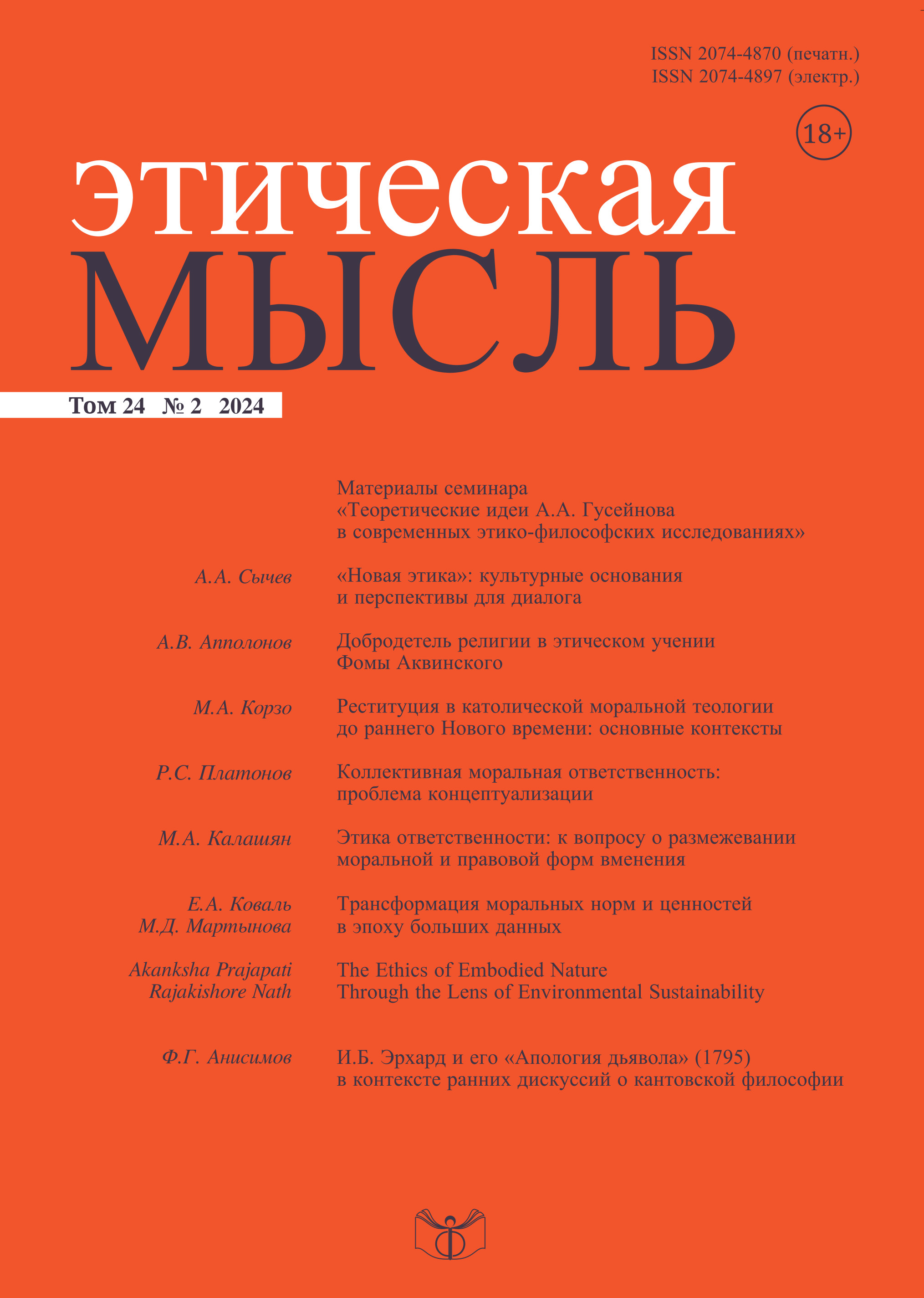Collective Moral Responsibility: The Problem of Conceptualization
DOI:
https://doi.org/10.21146/2074-4870-2024-24-2-76-90Keywords:
ethics, morality, responsibility, collective moral responsibility, subject, moral subject, collective subject, noxal responsibility, political responsibility, noxalAbstract
The article sets a goal to show whether the idea of collective responsibility is relevant to moral issues and whether its conceptualization in moral philosophy is possible. For this purpose, the analysis of the discussion on collective moral responsibility is carried out in two of its main directions: problematization of collective action and problematization of collective subject, while the analysis is focused on identifying the specifics of the position of an individual moral subject as the main one for moral philosophy. It is shown that the main principle of conceptualization of collective moral responsibility is reduction: the collective subject and action are developed as reduced forms of an individual subject and his act by highlighting its individual characteristics as sufficient for attributing moral responsibility. The types of such reduction are identified: reduction to an individual, reduction of qualitative and quantitative characteristics. Reduction to an individual leads to his objectification, depriving him of subjectivity in the aspect of attributing responsibility, but referring to him as a subject in the aspect of fulfilling responsibility (such a morally paradoxical state – an object bearing moral responsibility – is given the name “noxal”). The reduction of characteristics does not allow us to consider a collective subject as a full-fledged one in the moral sense, since instead of its essential definition it gives only a functional one, the main mental operations in this case are analogy and association, which does not allow us to consider reduced models of a collective subject as sufficiently substantiated; it also follows from this the demarcation of methods in the conceptualization of moral responsibility into individualistic and holistic declared by some researchers is not real, since in essence all holism is based on the analogy and association of the characteristics of the collective subject with the characteristics of the individual subject. It is concluded that the problematic of collective responsibility does not have an adequate subject in the field of morality, and the functional definition of a collective subject is sufficient for the legal regulation of collective activity without recourse to morality.









